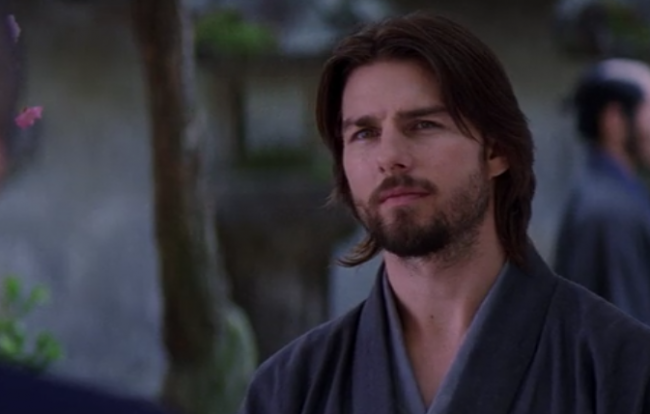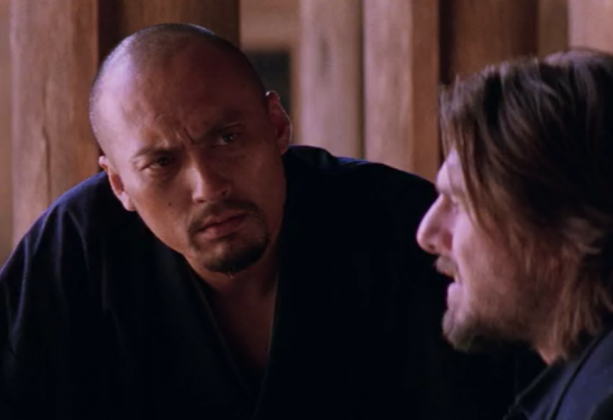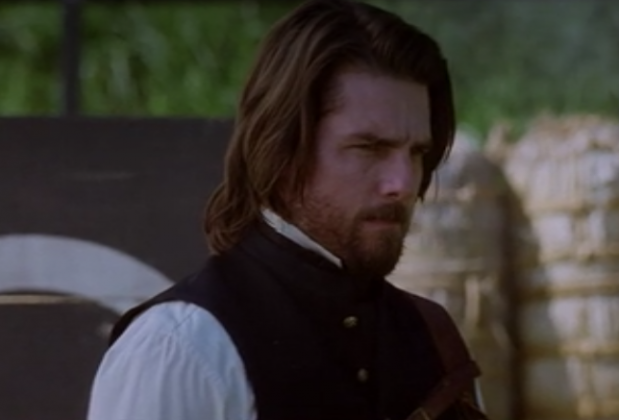Tom Cruise and the Haunted Hero of ‘The Last Samurai’
The Last Samurai is a historical war film about a US Civil War veteran who comes to Japan to train soldiers but finds he has more in common with the enemy they will face. It earned high praise for its epic scale and intelligent story, and features a standout performance from its star.
To start, while The Last Samurai was a critical and financial success, it raised a lot of questions and debate about Hollywood’s role in presenting an accurate history, and more so, the ways in which race and identity are presented. It was not a new conversation and it is one that surfaces often when films such as this are released but the efforts the makers of The Last Samurai took to ensure their story was presented well (such as casting authentic Japanese actors) are firmly established, as are the changes they made in this story’s history to create a representative drama more accessible to his primary audience. But instead of focusing on these issues, which are covered elsewhere on the internet, I want rather to discuss the film’s main character and the manner in which actor Tom Cruise delivers him to the screen, easily one of the best in his career. But let’s look at the story first.
The plot is complex but essentially takes place at a time when the country of Japan was in a frenzy to remove itself from its medieval past and adopt a stronger, Western philosophy. This meant a dramatic shift in everything from opening its borders to international commerce to fashion trends that had citizens clamoring for suits and dresses rather than the traditional centuries-old garb. Naturally, the West was eager to profit from these new economic opportunities and one of the bigger deals to be made was in weapons and training. In stepped US and European powers who gladly filled contracts and acted as purveyors of military might for the Asian country.

In accomplishing this, the Japanese Emperor (played by Shichinosuke Nakamura) looked to form a standing imperial army, built of conscripted men whose first job would be to defeat the previous army of samurai warriors who, while loyal to the Empire, rejected the countries embrace of Western culture. A rebellion formed and to ensure their demise, the Japanese hired Western soldiers to train their men in that style of military combat.
In comes Captain Nathan Algren (Cruise), a disillusioned American Civil War veteran, now reduced to working side shows hawking Winchester rifles, feeding his self-loathing alcoholism. In depression over his role in the many atrocities committed fighting Native Americans, he is a bitter, somber man with lack of self regard and worse, honor. That said, his skills as a soldier are renowned and as such he is offered a defining role in Japan’s efforts to become a “civilized” country, as his former commander Col. Bagley (Tony Goldwyn) puts it, where the whites can show the savages how to join the modern world. For Algren, the terms and descriptions are as disgusting as they sound and serve as stark reminders of how it was with the American Indians. And yet, in desperate need of money, he takes the job and travels to Japan.

He finds that the “army” he is meant to train is nothing more than peasants, forced into military service who have no background or skills for combat. But despite their utter lack of warfare ability, Algren’s Japanese and American superiors order him to take them into battle when, during training, a supply railroad comes under attack by samurai. Fiercely protesting the decision, Algren nonetheless leads the unsuitable soldiers to what becomes a slaughter, as the peasants, no match for the highly-trained warriors are killed or flee. At its end, Algren himself, even having defeated several of the samurai himself, is surrounded and sure to meet his end, but his life is spared by Katsumoto (Ken Watanabe), a noble and gifted samurai leader.

Captured, Algren is taken to the samurai camp in the mountains where he and Katsumoto begin a series of conversations that have profound effect on the Western man, and as the long bitter winter passes, he become deeply ingratiated into the samurai way of life, finding himself more drawn to the honor of the samurai than the greed of the West. With this, the story’s complex and moving transformation of the Algren character takes shape and the hero, haunted by his past, begins his journey of discovery.
Directed by Eward Zwick (Glory, Courage Under Fire), The Last Samurai is a unique film in the Tom Cruise canon, even if there are superficial themes of personal triumph and lone-man-heroism that tenuously link it with other Cruise titles. Despite his decision to largely focus of large-scale action movies in his career, Cruise has never let that reduce him to a lesser actor. From the stunt-heavy Mission: Impossible franchise to science fiction fare like War of the Worlds, Oblivion, and Edge of Tomorrow, he has always given great depth to the characters he portrays, never sacrificing the importance of who they are for the sake of a great visual. When he hangs off the back of an airplane, it matters because we are invested in him, not the scene. That’s why Tom Cruise is so famous.

With The Last Samurai though, we see something we had glimpse of very early in his career with his performance as Ron Kovic in Oliver Stone‘s Born on the Fourth of July, another war movie about a man coming to terms with not only a deeply traumatizing combat memory but physical limitations. That was an Academy Award-nominated role that proved the young star was for real, and while he switched gears and established himself more as an action star than a dramatic lead, he has never disproved what he showed in that film. As Nathan Algren, he revisits the guilt-character persona and yet there is much more happening here and Cruise, older, weathered, more refined as an actor, makes this a riveting experience.
The Haunted Hero
The parallelisms between the highly honorable samurai and the Native Americans are a running theme for Algren. The battles in the United States that saw American soldiers (including Algren) cutting down lesser equipped but dignified, proud people are the echoes that ring in his tortured mind as he draws connections to what is happening again in a land so far away. At the start of the film and even more so as he begins his time with the samurai, he sees little to no value in his life. He has betrayed humanity at its most basic levels, and the training of the Japanese soldiers is merely a paycheck, but one he doesn’t take less seriously. In fact, he takes to it with sterile professionalism. He’ll kill anyone for $500 a month. He’s sunk to this depth.

But of course, he is a dark figure, a soul in torment, and when that day comes when ordered to prepare his men to defend the railroad, he not only assures his commanders (one of which is Bagley) that they are not ready, he demonstrates so by putting himself in front of a firing target and demanding one of his Japanese soldiers shoot him. The unskilled peasant refuses, but as Algren aims his own pistol at him and shoots off the soldier’s helmet, saying if he doesn’t use his rifle he will kill him, the man attempts to do so, but with such great pressure and no stomach for killing, can’t do it (in a scene eerily similar to a moment in Zwick’s equally good Glory). All the while, Algren is hoping the fired shot will actually hit its mark and end his life. He is disappointed when it doesn’t. It’s the first impactful moment where we see the true emptiness of Algren’s internal struggle and desire for it to be over. This creates fearlessness and it is this fearlessness that drives him, and what, unsurprisingly, gets noticed by Katsumoto. He is a warrior by nature.
Cruise makes Algren more than just the trop-ish white savior of many films accused of such. Algren is in fact not truly the hero of the story. That instead is a concept, that of the honor of the samurai, the real defining trait of the film. Cruise gives Algren a sense of remorse that may harken back to Kevin Costner‘s Dances With Wolves, and yet the parallels end there. Algren is not just disillusioned with a people’s plight, he is wrecked by his contribution to it.

While there are certainly strong moments of action in this film, these scene have weight in the story, but what The Last Samurai is, is not an action film but rather an intellectual one, posing and trying to answer some deeper questions about the purpose of man, life and his inevitable death. It heightens the film and makes these character’s fates all the more valuable.
Cruise’s performance is a deeply nuanced one. We are finely tuned into the action star is he at this point, but we are more drawn into the complexities of the sorrow and guilt, the repentance and correction, the honor and the respect. This is a powerful piece of work from the talented movie star and while the epic scale of the story and Ken Watanabe’s own harrowing (and Academy Award nominated) performance make for easy excuses to dismiss it, this is one of Tom Cruise’s finest achievements.
